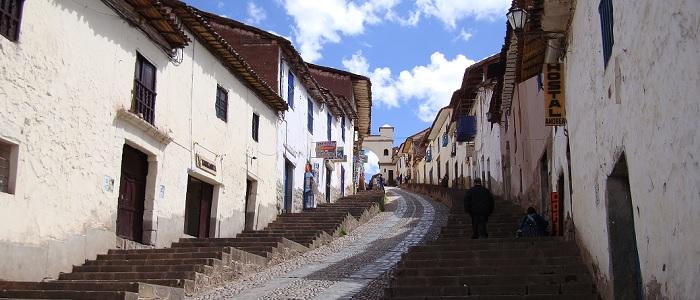Elective Courses
Fall Term 2018 Elective Courses
9104A - Special Topics in Bioarchaeology: Advanced Analytical Techniques in Archaeology and Bioarchaeology
The objective of this course is to explore how advanced analytical techniques are applied in archaeology and bioarchaeology. As such, the focus is not on any specific analytical technique per se. Rather, the course focuses on:
- the theoretical context and paradigm within which techniques are applied and results interpreted
- how such analysis must be done within the interdisciplinary context – including defining interdisciplinarity and exploring the factors that encourage and/or discourage interdisciplinary research
- and exploring the nature of collaboration, including issues of intellectual property
Course assignments will include ethnographies of successful interdisciplinary projects across campus, an analysis of how granting agencies shape research and a detailed paper exploring a particular analytical technique and its application that is relevant to the students’ research.
| Andrew Nelson | Wednesday, 10:30am-1:30pm |
Course Outline |
9108A – Advanced Research in Paleopathology and Paleodiet
This course will explore disease and diet in past human populations with particular focus on the interaction of health and nutrition. A range of topics within paleopathology, the study of ancient disease, and paleodiet, the study of ancient diet, will be investigated to learn what can and cannot be discerned about human health through the analyses of skeletal and dental remains from archaeological contexts. Major techniques for reconstructing disease and diet from archaeological human remains are covered. The skeletal and dental markers of disease, injury, and diet are a source of evidence about the broader context in which people lived, for example providing information about changing environments, changing exposure to pathogens, population size and density, conflict between groups, the varied effects of the domestication of plants and animals, and activity patterns such the gendered division of labour. Cutting-edge research in biological anthropology is utilizing the interaction of health and nutrition to address broad hypotheses about human adaptation and evolution.
- Cross-listed with Anthropology 4408F
| Andrea Waters-Rist | Tuesday, 1:30 - 4:30pm |
Course Outline |
9214A - Memory, History and Reconstructions of Identity
The course examines the reproduction of the past, whether professional historical productions or popular memory, as entwined to present givens and interests. It similarly assumes that identity constructions inevitably invoke the past. The course includes readings on how memory is reproduced in the context of migration/diaspora, the political aspect of memory, and the struggle for and against power.
- Eligible for credit towards the MER Collaborative graduate program.
| Randa Farah | Tuesday, 9:30am-12:30pm |
Course Outline |
9216A - Advanced Research in Language: Field Techniques in Linguistics
In this course students will elicit and record linguistic data from a native speaker of a designated language and then study its phonological and lexical-grammatical systems. Selected aspects of the language will be analyzed in terms of current problems in linguistic theory.
- Cross-listed with Anthropology 3237A & Linguistics 9237A
| Tania Granadillo | Monday, 1:30-2:30pm & Wednesday, 1:30-3:30pm |
Course Outline |
9225A - Special Topics in Sociocultural Anthropology: Reading and Writing Ethnography
In this course, we will explore ethnography as a mode of knowledge and representation, as a theory and practice, and, above all, as a genre of writing. We will begin by considering some classic debates about ethnographic writing and then turn to in-depth analyses of several contemporary ethnographies.
- Cross-listed with Anthropology 4493F
| Greg Beckett | Thursday, 1:30-4:30pm |
Course Outline |
Winter Term 2019 Elective Courses
9111B - Advanced Bioarchaeology
This course provides an introduction to current theoretical and methodological issues in bioarchaeology. Use of ancient human, animal, and plant tissues to reconstruct relationships among biology, culture and environment in international contexts is emphasized. Topics include: diet, demography, disease, identity, mobility, landscape, childhood, gender, ideology, political economy, violence, work, urbanism, and globalization.
Cross-listed with Anthropology 3311G
| Andrew Nelson | Tuesday, 9:30am-12:30pm |
Course Outline |
9105B - Special Topics in Archaeology - Advanced Artifact Analysis
This course provides students with a hands-on introduction to the identification, analysis and interpretation of a range of archaeological artifacts including lithics, ceramics and organics. Students will work with archaeological collections that are available for analysis.
- Cross-listed with Anthropology 3313B
| Peter Timmins | Thursday, 1:30-4:30pm |
Course Outline |
9215B - Discourse and Society
Discourse analysis provides empirical grounding for explanations and interpretations of culture, society and social behaviour. Attention to discourse (language in use) reveals the diversity of perspectives within cultural and social groups, reminding us to be critical of generalizations we make, while deepening our understanding of issues. In this course, we will explore how discourse is shaped by many things including the world as we know it, the structures of language itself, social relations, prior discourses, the limitations and possibilities of the medium, and various speaker purposes. Examples of discourse features include: pragmatic expressions (including discourse markers), slang, stance, style, framing, register, genre, and reported speech.
| Karen Pennesi | Thursday, 1:30-4:30pm |
Course Outline |
9900B - Special Topics in Anthropology: Visual Anthropology
This course is an introduction to visual anthropology and to visual studies more broadly. The course tracks the parallels and divergences in debates about representation as they occur in art and anthropology. The course is experiential and will ask you to experiment with visual thinking strategies of various kinds. No artistic or technological expertise is required. Instead, curiosity and a collaborative spirit are essential.
- Cross-listed with Anthropology 4494G
| Lindsay Bell | Wednesday, 10:30am-1:30pm |
Course Outline |
9300A/B (MA) or 9800A/B (PhD) - Directed Reading Courses
If you plan to take a Directed Reading Course, you should first consult with your supervisor and with the faculty member who will be supervising the reading course, and then obtain the Graduate Chair's approval. Please complete the Directed Reading Course form and return it to the Graduate Assistant in SSC 3324.


